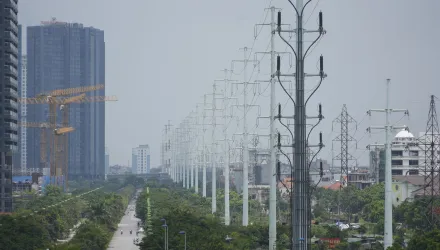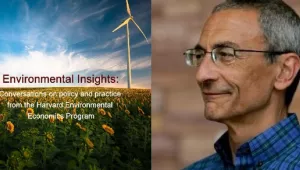Energy Policy Seminar: Joe Aldy on "Learning to Build Back Better"
Join us for an Energy Policy Seminar featuring Joe Aldy, Professor of the Practice of Public Policy at Harvard Kennedy School. Aldy will give a talk on "Learning to Build Back Better." Q&A to follow. Buffet-style lunch will be served.
Attendance: In-person attendance is limited to Harvard ID holders. Room capacity is limited and seating will be on a first come, first served basis. Members of the public are welcome to attend virtually via Zoom.
Recording: The seminar will be recorded and available to watch on this page (typically one week later). Those who register for this event will automatically receive a link to the recording as soon as it becomes available.
Accessibility: Persons with disabilities who wish to request accommodations or who have questions about access, please contact Liz Hanlon (ehanlon@hks.harvard.edu) in advance of the session.
Registration: Both in-person and virtual attendees should register using the button below. Upon registering, all attendees will receive a confirmation email with a Zoom link; virtual attendees should use the Zoom link to access the seminar. Registration will remain open until the event begins.



